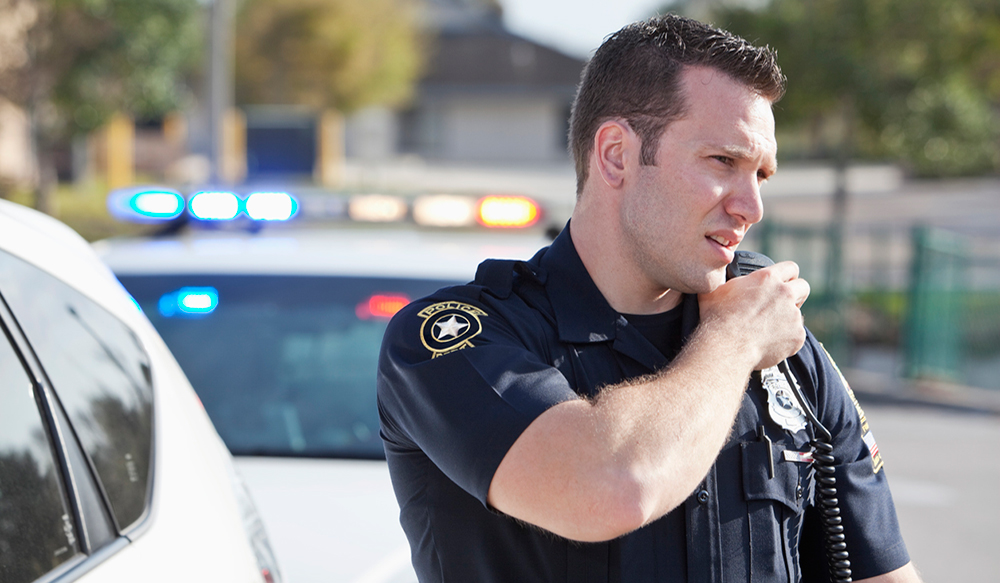The father of a student shot and killed at Marjory Stoneman Douglas High School says Broward County is not doing enough to improve its public safety radio system that failed during the mass shooting.
Max Schachter, whose 14-year-old son Alex was one of 17 killed on February 14, spoke to county commissioners Tuesday, saying the county knew in 2016 that its Motorola-operated system needed to be upgraded but did not implement temporary improvements, reports The Sun-Sentinel.
When deputies and officers from the Broward Sheriff’s Office and the Coral Springs Police Department arrived at Stoneman Douglas, they were unable to communicate with each other due to failed attempts to merge radio traffic, barring them from exchanging descriptions of the shooter and his location.
“White male with ROTC uniform burgundy shirt,” a Coral Springs police officer said over the radio. “Last seen in the three-story building, north parking lot,” the officer continued, referring to building 12.
Seconds later, a Broward County sheriff’s deputy responds to an inquiry regarding the shooter’s location.
“We don’t know, but we’re heading in the building, in front of the 13 building, building 13,” he said.
At some points, officers were unable to transmit or receive radio messages completely. Some officers were forced to use hand signals to communicate with each. In other instances, it took four or five attempts for a responding officer to transmit a single piece of information over the radio.
A report from the sheriff’s office said the radio system is more than 25 years old and is “nearing its end of life.”
“This impairment, otherwise known as ‘throttling,’ occurred at some point during the incident and hindered radio communications,” the report continued. “This issue is being further analyzed.”
‘Throttling’ Was Cause of Delays, Says Motorola
Danny Sanchez, a Motorola representative, says the system did not fail. The system went into “throttling” mode, which he describes as a safety mode that prevents the system from crashing altogether from increased radio activity. Throttling gives users a busy signal or error message when someone attempts to use the radio system.
Sanchez says there is no way to increase the current system’s capacity or bandwidth. However, the new system will have more capacity, increasing from 28 to 39 channels, but will still rely on throttling if it goes over capacity. The new system has been designed based on the county’s specifications, adds Sanchez.
Broward County Commissioner Michael Udine calls the delays unacceptable.
“To the average Joe on the street, throttling is the equivalent of radio failure because it doesn’t let [police] do what they’re supposed to do,” Udine said.
Schachter echoed Udine’s statement during Tuesday’s discussion.
“If there’s another emergency tomorrow, I don’t want to hear, ‘We bought a new system. It’s coming in 2019 or 2020,’ ” Schachter said. “It is unacceptable, Motorola, that in a mass casualty incident, the damn thing doesn’t work. You cannot resort to hand signals to save people’s lives. You cannot have a situation where SWAT cannot communicate. We need to fix this, thank you very much, and I hope we can get this done as soon as possible.
[promo_content slug=”csc-2018-general-promo”]
Administrator Bertha Henry says The Police Foundation, which was hired to consult with the county, will review the response to the shooting and will look into the county’s radio system to make recommendations.
Commissioners are also emphasizing the importance of training police and other radio users on how to avoid overloading the system, according to GovTech. Many officers are unaware that turning on their radio or switching channels affects the entire network, officials say, so officers not even responding to an incident but wanting to know what is happening can weaken the system’s capabilities.
“Until last week, I didn’t know they didn’t want guys changing channels,” Broward Undersheriff Steve Kinsey said.
Stoneman Douglas is not the only incident where the county’s radio system had failures. In January 2017, five people were shot and killed at the Fort Lauderdale-Hollywood International Airport after a gunman opened fire in a busy baggage claim area. A rush of radio traffic from responding officers led to communication problems.
Prior to the airport shooting, in 2015, a consultant reviewed the county’s radio system and said that it needed to be replaced and that much of the equipment was “past the end of typical replacement periods.”
Last year, commissioners approved spending $59.5 million on a new system but it is not expected to be implemented until the end of 2019.













